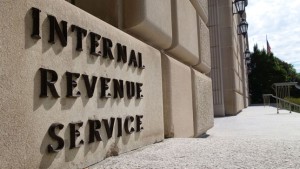First Time Abate: The ‘Get Out of Tax Penalties Free’ Card
BY PAUL L. MANCINONE AND ALISON WALSH


Most tax practitioners occasionally find themselves in the position of having to deal with clients who have received penalties for late filing of tax returns or late payment of income taxes.
As both a CPA and attorney, our office always has penalty abatement requests in process. Most penalty provisions of the Internal Revenue Code have reasonable cause language, so the penalty can at least be addressed with a good reasonable cause argument, assuming one exists. Those penalties involving “intentional” or “willful disregard” language, with considerably higher dollars at stake, tend to involve a more extensive plan of attack.
It’s safe to say most taxpayers who tend to heed the advice of quality preparers don’t find themselves in penalty situations very often. But wouldn’t it be great if there was a simple streamlined tool to abate penalties for otherwise diligent and responsible taxpayers? Well there is, and it’s been around since 2001! It’s an administrative waiver called “First Time Abate.”
A while ago, we wrote about Form 8275, Disclosure Memo, as a safety tool to avoid penalties by disclosing a position on a tax return for which the preparer and taxpayer believe they have reasonable basis, but are nonetheless not quite sure (see IRS Penalties: Speak Softly and Carry Form 8275). We were, and continue to be, astonished by the lack of use of this most valuable resource. First Time Abate is another penalty tool that we are surprised hasn’t yet become mainstream in tax practice.
In 2001, the Internal Revenue Service began granting penalty relief under an administrative waiver known as First Time Penalty Abate. It’s not in the Internal Revenue Code; it comes under the “Reasonable Cause Assistant” (RCA) of the IRS and it’s in the Internal Revenue Manual (IRM 20.1.1.3.6.1). Like many provisions of the Internal Revenue Manual (repetitive examination procedures, for example), First Time Penalty Abate availability is not well publicized by the IRS.
Here’s how it works. The IRM basically states that First Time Abate applies to penalties for late income tax filings (including partnerships and S corporations) and late income tax payments (including late deposits of tax). Such abatement may be granted as long as the taxpayer has a clean history (no penalty assessments) for the previous three years. The purpose behind First Time Abate relief is to reward past compliance and promote future compliance by utilization of this “get out of penalty free card.”
A clean history means a clean history, but some areas of the Internal Revenue Manual or other research are worthy of note. For example, the criteria includes “if current taxes are paid, or arranged to pay.” Well, “arranged to pay” means the IRS will consider the taxpayer current if an installment agreement is in existence, as long as the payment plan is in good standing. Thus, an installment agreement in good standing does not negate the possibility of relief under the First Time Penalty Abate administrative waiver. In addition, if there was a prior penalty in the previous three years, but it was removed due to reasonable cause, that activity should not count as a “prior penalty.” Thus the opportunity to be awarded this first time abatement is still applicable in that situation.
Our office simply requests this waiver by responding to the address on the penalty assessment letter, stating the taxpayer’s “good three year history” and a request that the “penalty be waived under First Time Penalty Abate Administrative Waiver.” Frankly, we try it with a whole variety of penalties, not just late filing and late payment of income tax returns, since First Time Abate is not quite “the law” and clearly discretionary. In addition, if one of the prior three years had an insignificant penalty, there is language in the IRM that suggests consideration, so we’d try in that case too, especially if we lack reasonable cause. Try.
In 2012, the Treasury Inspector General for Tax Administration pointed out that the IRS failed to inform about 1.45 million taxpayers that they qualified for this relief, resulting in $181 million in waivable penalties. TIGTA recommended the IRS ensure taxpayers are aware of this potential waiver. However, from what we see, this has not been the case. Most practitioners, as well as the vast majority of taxpayers, are not familiar with this most welcome opportunity.
Paul Mancinone is a CPA and attorney at law, and represents businesses and individuals before the IRS. Alison Walsh is an accountant and manager at his firm, Paul Mancinone Company, P.C., in Springfield, Mass.
I know exactly what you mean tcalverley – I have had the same problem with the IRS giving us the “Congratulations – we have waived the penalty based only on your clean compliance history” when I have clearly explained that the small $60 (or whatever) penalty they have assessed was in error. They don’t listen and who wants to spend any more time on a small penalty like that – but if within three years from that, the taxpayer (for whatever reason) ends up with a large penalty, you better believe I’m going to fight tooth and nail to get First Time Abate for THAT penalty since they never should have issued the first penalty to begin with. So far we haven’t had to deal with this yet (i.e., we haven’t had the IRS erroneously use FTA for a penalty that THEY issued in error and then have another more substantial penalty within three year years that we needed to get them out of).
Also – by the way, I have had IRS agents/assistors tell me on the phone that when it comes to PAYMENTS they don’t have to use the postmark date. I know of taxpayers who have mailed their payments on the due date only to be smacked with interest and a penalty for filing late and when I called to say they were wrong because they mailed it on the due date, they said nope – they don’t have to go by the mailbox rule when it comes to payments.




 By the end of today, the IRS is scheduled to release approximately 10% of refunds under $1000 which were filed prior to 1/23/2016. Tomorrow, the IRS is slated to release some additional refunds which were filed on 1/23 and 1/24. However, as is the case today, our information shows that the IRS will again release only approximately 10% of refunds under $1000 during that time period. Put another way, for the most part, the IRS has not yet released ANY refund over $1000.
By the end of today, the IRS is scheduled to release approximately 10% of refunds under $1000 which were filed prior to 1/23/2016. Tomorrow, the IRS is slated to release some additional refunds which were filed on 1/23 and 1/24. However, as is the case today, our information shows that the IRS will again release only approximately 10% of refunds under $1000 during that time period. Put another way, for the most part, the IRS has not yet released ANY refund over $1000.





 JULY 05, 2016
JULY 05, 2016 JULY 04, 2016
JULY 04, 2016 JULY 03, 2016
JULY 03, 2016 JUNE 30, 2016
JUNE 30, 2016 JUNE 30, 2016
JUNE 30, 2016 JUNE 28, 2016
JUNE 28, 2016 JUNE 22, 2016
JUNE 22, 2016 JUNE 22, 2016
JUNE 22, 2016 JUNE 22, 2016
JUNE 22, 2016 JUNE 22, 2016
JUNE 22, 2016 JUNE 22, 2016
JUNE 22, 2016 JUNE 21, 2016
JUNE 21, 2016 JUNE 18, 2016
JUNE 18, 2016
